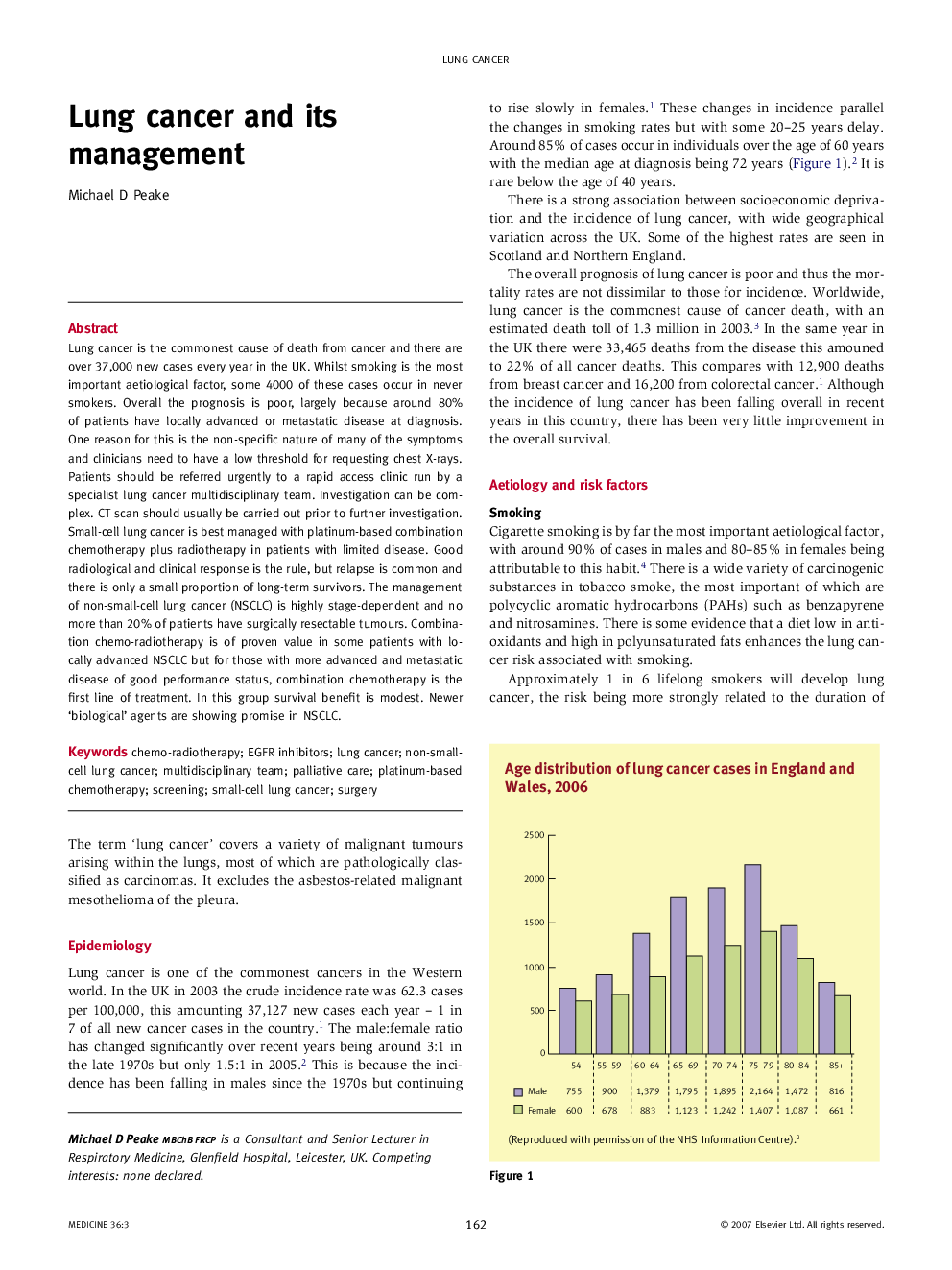| Article ID | Journal | Published Year | Pages | File Type |
|---|---|---|---|---|
| 3807425 | Medicine | 2008 | 6 Pages |
Lung cancer is the commonest cause of death from cancer and there are over 37,000 new cases every year in the UK. Whilst smoking is the most important aetiological factor, some 4000 of these cases occur in never smokers. Overall the prognosis is poor, largely because around 80% of patients have locally advanced or metastatic disease at diagnosis. One reason for this is the non-specific nature of many of the symptoms and clinicians need to have a low threshold for requesting chest X-rays. Patients should be referred urgently to a rapid access clinic run by a specialist lung cancer multidisciplinary team. Investigation can be complex. CT scan should usually be carried out prior to further investigation. Small-cell lung cancer is best managed with platinum-based combination chemotherapy plus radiotherapy in patients with limited disease. Good radiological and clinical response is the rule, but relapse is common and there is only a small proportion of long-term survivors. The management of non-small-cell lung cancer (NSCLC) is highly stage-dependent and no more than 20% of patients have surgically resectable tumours. Combination chemo-radiotherapy is of proven value in some patients with locally advanced NSCLC but for those with more advanced and metastatic disease of good performance status, combination chemotherapy is the first line of treatment. In this group survival benefit is modest. Newer ‘biological’ agents are showing promise in NSCLC.
